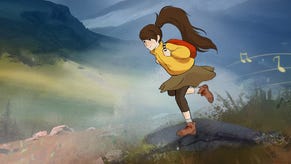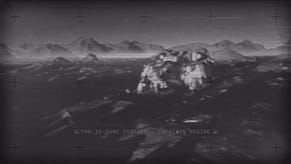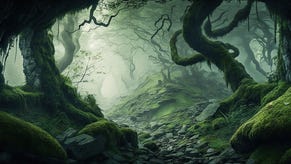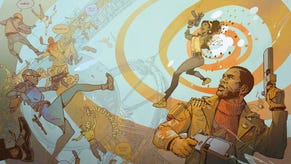Games of the Decade: Outer Wilds is the future
For the makers of music.
If the past decade in big budget game design has been marked by anything, it is surely the calcifying of "progression" as a concept. The noughties saw the unholy conjoining of the action game and RPG levelling structures in games like Bioshock. Coupled with the triple-A publisher cabal's redefining of games as content delivery systems, this has given rise to a whole raft of experiences in which players toil endlessly towards moving goal posts. Finales be damned: there must always be something else to unlock.
What a powerful relief it is, then, to play Mobius Digital's Outer Wilds, and realise you have everything you need to complete it from the word go. An unwieldy spaceship lashed together from planks and portholes, closer to Red Dwarf's Starbug than the Apollo lander. A patchy spacesuit, perilously easy to forget. A handheld probe launcher, used for remote snapshots or to test a planet's gravity by firing a probe over the horizon. A shotgun mic for tracking down signals, and a pocket translator with which to unwind the spiral script of a long-dead race of alien explorers. There is nothing to earn, nothing to stockpile, no "progression" at all. All you have to do is work out what is happening, and where and when you need to be in order to stop it.
Knowledge is the only thing in Outer Wilds that endures. The premise is that you are caught in a 20 minute timeloop, always ending with the destruction of the sun. Prior to that cataclysmic (though magnificent) denouement, each of the game's planets undergoes colossal changes according to a tight script. Ice thaws, topsoil is peeled away, continental plates implode, asteroids flatten hillsides, islands are ejected into orbit by cyclones. The game's worlds are toy-like, each a mere kilometre or two across, but their sheer instability and the limited time you have to explore them gives them magnitude.
Curiosity mixes with bewilderment and a mounting despair. There is no solid ground: everything is becoming something else. Nowhere is safe to stand. But then you meet your fellow voyagers, bear-like figures hunkered over campfires in the bubbles of oxygen created by trees, calmly plucking at musical instruments amid the chaos. Find the right point in deep space from which to listen, and you can layer all those campfire refrains together into a complete song, even as you slowly piece together the plight of that forgotten alien race on your ship's computer. That discovery of resonances, of kinship between those in the present and those long-dead, is what elevates the game from a baroque cosmic puzzle into a work of heart.
There is so much more to learn from Outer Wilds. It is a (sadly necessary) reminder that conquest and acquisition do not make a video game. It is a joyful celestial contraption, redolent of Super Mario Galaxy but far grander and less tidy, with room for ugliness and loss amid the wonder. It is about the act of gleaning a future from the shifting, reassembling wreckage of the past. The game is often confused with The Outer Worlds, Obsidian's recent, easygoing sci-fi satire. I find this ironic, as while Obsidian's game harkens back to the loot-sodden vistas of Fallout: New Vegas, a decade before, Outer Wilds feels like the one developers should spend the next 10 years learning from. If progression must be the rule, let's take this as our starting point.




-45-57-screenshot.png?width=291&height=164&fit=crop&quality=80&format=jpg&auto=webp)













